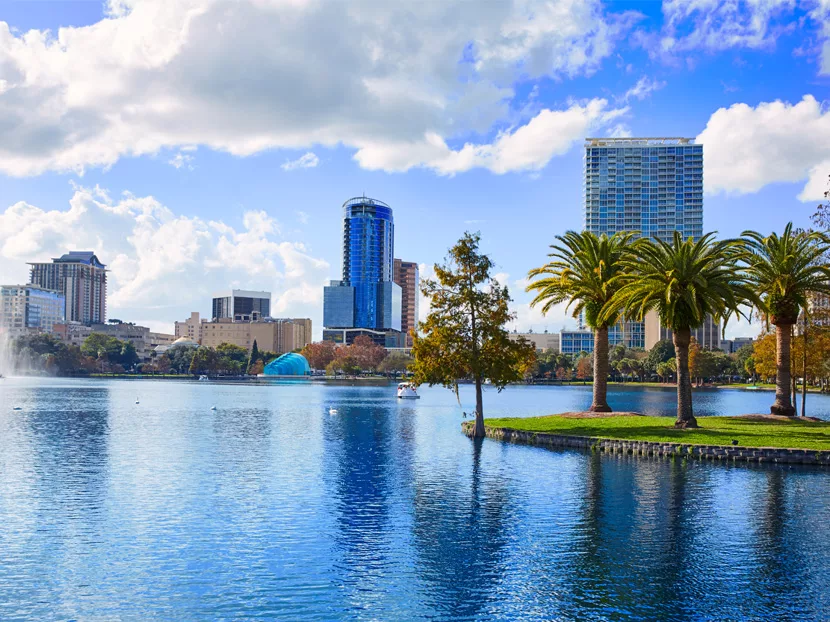Florida is an interesting place at an interesting time in history. This state is more likely to be negatively impacted by climate change than most parts of the U.S. However, it is also a state that seems to be very conflicted about how to address or even talk about the topic. But officials can’t as easily ignore the effects of climate change.
The economy of the Sunshine State relies heavily on visitors. FLgov.com states, “The state’s number one industry, tourism is crucial to Florida’s economy – generating 23 percent of the state’s sales tax revenue and employing more than one million Floridians.”
Additionally, close to 500,000 people have second homes in Florida. It has been the number one state for second homes in the last three census data sets. These second homes and vacation properties may be hit by some of the earliest, most destructive effects of climate change.
It’s not as if Florida doesn’t fight to protect its tourism cash flow.
In 2018, a federal ban was lifted on offshore drilling in the U.S. Florida Gov. Rick Scott (who, at press time, is in a recount on his quest to be elected a senator) fought hard to keep this federal regulation of the oil industry in place, which is an odd position for a Republican in the 2018 political landscape.
U.S. Interior Secretary Ryan Zinke stated: “Florida is unique and its coasts are heavily reliant on tourism as an economic driver. As a result...I am removing Florida from consideration from any new oil and gas platforms.”
Gov. Scott is concerned about specific threats to the Florida coast, short-term. Long-term, he isn’t excited about talking climate change.
In 2014, The Miami Herald reported: “Florida Department of Environmental Protection officials have been ordered not to use the term “climate change” or “global warming” in any official communications, emails, or reports, according to former DEP employees, consultants, volunteers and records obtained by the Florida Center for Investigative Reporting.”
Famously, Gov. Scott addressed climate change concerns with a response that he “isn’t a scientist.”
Concern and avoidance
Gov. Scott’s perspective is fairly common in Florida. Acknowledged concern for the future of their state and their key tourism cash flow is coupled with a puzzling avoidance of directly addressing the topic. As if saying “climate change” three times in a row would make it happen, like the movie Beetlejuice.
Yale University’s Program on Climate Change Communication conducted an opinion poll survey in 2016 about perceptions of climate change and presents findings with a customizable map on its website (http://bit.ly/2PO680r). Forty-one percent of Floridians surveyed believe that global warming will harm them personally, slightly higher than the national average of 40 percent. However, 68 percent responded that they never talk about it.
But not all Floridians are staying silent. The Southeast Florida Regional Compact is a group of four southern Florida counties who are working together to anticipate and prepare for the effects of climate change in their neighborhoods. This group published a chart with projections for sea level rise from three different research groups (The National Oceanic and Atmospheric Administration, United State Army Corps of Engineers and Intergovernmental Panel of Climate Change).
The projections for 2100 are startling. The ocean around Southeast Florida could rise 31 inches (IPCC AR5 median projection) or up to 81 inches (NOAA high projection) by 2100. The vast majority of the southern 100 miles of Florida could be under the ocean by the end of the century.
Miami citizens also recently voted for help to address flood-related issues that would be caused by sea level rise. Fifty-five percent of the electorate voted for the “Miami Forever Bond,” with $192 million of the bond to be allocated to drainage upgrades, anti-flooding pumps and seawall improvements.
Unfortunately, no number of sea walls will stop the rising water levels in Southern Florida. Miami is built on what geologists call “Miami limestone,” porous rock that serves as the foundation for most of Southern Florida. And if the floor is porous, you can’t build a 20-foot-tall perimeter wall around a building and expect to keep the sea out. It is like a canoe with a bottom made of Swiss cheese. Which means you have to pump the water out faster than it seeps in to stay dry, similar to the New Orleans strategy.
Climatecentral.org notes that one-third of Florida is located less than 10 feet from the current high-tide mark. This is 85 percent of Miami-Dade and Broward counties. More than 4.6 million people live in those two counties and they are more threatened than any other entire state outside of Florida.
A warming world
The vast scientific evidence acknowledges a warming world. Evidence and measurements that can be peer-reviewed, replicated and are devoid of nostalgia, point to a world in peril. Opinion and agenda can’t change the measurements of a rising sea on a Miami beach.
On a global scale, the U.S. is the Florida of the rest of the world, in terms of climate change opinions. Only three countries—the U.S., Syria, and Nicaragua—have decided to abstain from the Paris Climate Agreement. That agreement isn’t even binding, but serves as a platform where leaders can discuss and collaborate on slowing the effects of climate change.
Overall, most U.S. citizens admit that the climate is changing, but only one in three adults in the Yale study “occasionally discuss” the topic. We have to talk about climate change if we are going to make the difficult decisions about the path forward. The U.S. perspective on climate change is like seeing a fire in your kitchen and arguing with your family about what caused the fire and the cost of using the fire extinguisher for an hour, while your house burns down.
The Yale survey found that 63 percent of U.S. respondents think global warming will harm people in developing countries. But only 40 percent think global warming will harm them personally.
This isn’t a “not in my backyard” issue. Climate change will alter major world cities, infrastructures, food supplies, trade routes and immigration flows. Unless you have a ticket to Mars, it would be best to start talking and solving the problem of climate change. No person on Earth is isolated from this issue.






